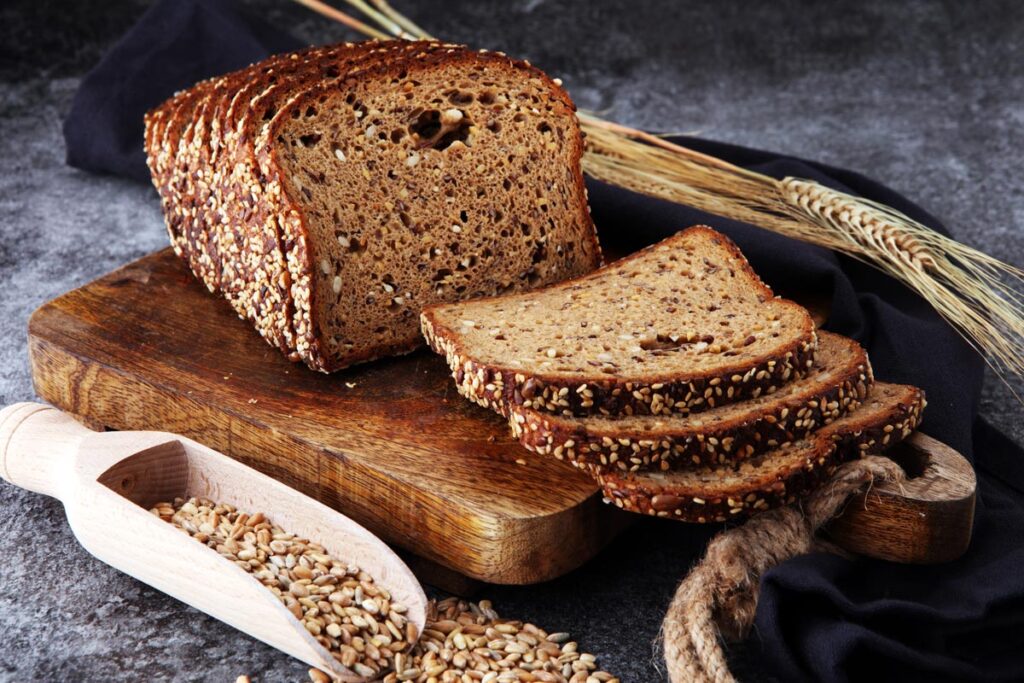Work With a Doctor Who Really Gets It
Looking for a more individualized approach to your health? Confused about how all the contradictory health advice applies to you? Looking to break free from our failing healthcare model? We have you covered.
Request a medical consult from Dr. Scher today!
Let’s Talk
Send us a message and let us know how we can help you.
Consult With Dr. Scher
The initial consultation is $1,495. Contact Dr. Scher today to see if you qualify.
You can take charge of your health.
Let Dr. Scher show you how.
Let’s Talk
Send us a message and let us know how we can help you.
Meet Dr. Scher, MD
The Low Carb Cardiologist

Hi, I’m Dr. Scher, and I’m changing the direction of preventive cardiology to better serve more people like you with the care you deserve. I’m also the CEO and Lead Physician at Boundless Health and the Low Carb Cardiologist. I spent the past 15 years as a frustrated board-certified cardiologist. My patients weren’t achieving their optimal health, and I didn’t have the time or resources to guide them. That’s why I sought out additional certifications in lipidology, nutrition, personal training, functional medicine, and behavioral change.
It is through this specialized training and working with thousands of patients I recognized how to provide better care. Your health is too important to trust to guidelines designed for the ‘average’ person. You are not average, nor should you want to be!
I’m glad you’re here. It tells me you know you deserve better care. I can’t wait to get started finding your path to true health.
Bret Scher, MD FACC
Board Certified Cardiologist and Lipidologist
Yes, People LOVE Dr. Scher’s Approach
Dr. Scher’s six-month program has been helping me make progress on my health journey. I started the program five months ago after I decided to get more serious about my health and reduce my coronary heart disease (CHD) risk by making healthy diet and lifestyle changes.
The program is not only providing me with excellent video and written content that helps me progressively realize my health goals with effective plans of action, but also individualized attention via email and with monthly video calls with Dr. Scher. I’m grateful for this individualized attention and for Dr. Scher’s insights and suggestions. His advice has honored my preference to continue following a low-carbohydrate lifestyle and has helped me select appropriate macronutrient targets such as daily intake of carbohydrates and protein based on my goals and his review of my medical history and lab test results.
Ken Carrillo
Chemical Engineer

What do I mean by “misunderstood?” Look no further than the common misnomer of “good” or “bad” cholesterol.
Good and Bad Cholesterol
While it may be true that High-Density Lipoprotein (HDL) has potentially beneficial functions (reverse cholesterol transport), we have to remember there is no such thing as good and bad cholesterol. The cholesterol carried by HDL is the same as that carried by LDL. The only thing that makes it good or bad is if it ends up synthesizing our hormones or bile acids (good), or if it ends up in our vessel walls (bad).
If it’s true there is no such thing as good and bad cholesterol, why do we care about our HDL levels?
First, let’s start with the basics.
HDL is the smallest and most densely packed lipoprotein and has one or more ApoA protein on its surface. HDL can help lipids move around in circulation by accepting triglycerides or cholesterol from other particles, thus helping a VLDL turn into an LDL, or helping an LDL contain less cholesterol (turning a small dense LDL into a less densely packed LDL).
Like LDL, HDL transports cholesterol to the liver for recycling or excretion, or to the hormone producing cells like in the adrenals. Unlike LDL, HDL does not have the potential to get retained in the vascular wall and does not, therefore, contribute to plaque formation. In fact, functioning HDL can remove cholesterol from the vessel wall, thus putting it back into circulation and possibly removing it from the body.
Back to the question at hand.
Why should we care about HDL levels?
Early epidemiological trials showed that lower HDL levels were associated with a higher risk of cardiovascular disease and even death. With such a strong association, the medical profession promoted elevated HDL levels as protective and low levels as something we need to avoid.
Since these were observational epidemiological studies, they do not prove that the low HDL caused the problems, only that HDL was associated with it. For instance, HDL is also known to be low in diabetes, metabolic syndrome and insulin resistance. It may, therefore, simply be a marker of underlying metabolic dysfunction that contributes to increased risk. Yet, HDL’s function in reverse cholesterol transport, and its ability to remove cholesterol from vessel walls suggests a more direct impact on cardiovascular health.
It is also important to note that the Framingham data suggested that increased cardiovascular risk with elevated total cholesterol and LDL-C was lost in the presence of high HDL. In fact, very low levels of LDL combined with very low HDL levels had a much higher risk than markedly elevated LDL levels when combined with elevated HDL.
Thus, HDL proves to be a useful marker to help predict cardiovascular risk. For instance, one large meta-analysis showed that total cholesterol/HDL ratio was a much stronger predictor of cardiac mortality than total cholesterol alone.
In addition, the PURE study, an observational trial in over 135,000 subjects, showed that when considering lipid changes brought about by nutritional changes, ApoB/ApoA1 (essentially LDL-P/HDL-P ratio) is the best predictor of clinical outcomes.
Thus, HDL level is important in assessing cardiovascular risk.
Drugs Muddy the Picture
While HDL may be a good predictor of risk, raising it with drugs does not seem to confer added benefit.
For instance, cholesterol ester transferase protein inhibitors (CETP inhibitors) significantly reduced LDL by 20-30% and increased HDL 100-fold, yet showed either no clinical benefit or even worse, an increased risk of death.
This was a shock to many in the lipid world as the notion of “good” and “bad” cholesterol would clearly predict lowering LDL and raising HDL would confer dramatic health benefits. So much so, that multiple pharmaceutical companies invested hundreds of millions of dollars developing these drugs only to abandon them when the trials showed no benefit.
Part of the issue is that not all HDL lipoproteins function the same. There are subsets of people with genetically determined markedly elevated HDL levels who have an increased risk of CVD. They may have plenty of cholesterol circulating in HDL particles, but the HDL particles are dysfunctional and therefore do not effectively remove cholesterol from vessel walls or LDL and do not effectively transport it to the liver. Conversely, there are those with a specific genetic mutation called ApoA1 Milano who have very low HDL-C and lower cardiovascular risk.
Simply measuring the HDL cholesterol content, therefore, may not accurately reflect its function. While we do not have easily available tests to measure HDL function, we can potentially use HDL particle assessment as well as the company it keeps (i.e. low triglycerides, larger less dense LDL particles) to better assess the potential benefits of HDL. Thus, if there is any concern about potentially dysfunctional HDL, I usually recommend advanced lipid testing to see the specific subtypes of HDL.
What can we conclude from all the HDL confusion?
Raising HDL with drugs does not reduce cardiovascular events, yet having a naturally low HDL is associated with increased risk.
The best answer, therefore, is to live a lifestyle that helps you have a “not low” HDL level. This means first and foremost avoiding the medical conditions associated with low HDL (i.e. insulin resistance, diabetes, and metabolic syndrome).
Textbooks predictably state the interventions to naturally raise HDL include exercise and moderate alcohol intake. Unfortunately, these have minimal effects. In fact, they pale in comparison to a low carb high fat lifestyle. In my 20+ years in the medical field, I have never seen an intervention as effective as LCHF in raising HDL, and the studies agree.
This brings us back to our question once again.
Why are HDL levels important?
HDL levels are important because it is a reflection of our underlying metabolic health and our lifestyle. A properly constructed LCHF lifestyle lowers triglycerides, raises HDL, and reduces the small dense LDL, among other benefits. Such a lifestyle likely reduces overall cardiovascular risk and will likely be shown to improve longevity and health span. While HDL may not be the main reason for this, we can’t ignore its role simply because it is more nuanced than “good” and “bad” cholesterol.
My advice, therefore, is to see the whole picture. Embrace the nuance. And make sure you get a thorough and proper evaluation of your cardiovascular risk.
If you are hungry for more, I created my Truth About Lipids program, a program focused on Cholesterol, to help break through the confusion and provide you with everything you need to thoroughly understand cholesterol and its impact on your health.
Learn more: Truth About Lipids Program
If you still have questions, you may want to consider a one-on-one health coaching consultation so you can get the individual attention you deserve with a thorough assessment of your lifestyle and its impact on you as an individual.
Please comment below if you have any questions or comments that may help further the discussion.
Thanks for reading.
Bret Scher MD FACC

Did you know changing the way you eat may be able to normalize your blood pressure completely? For many people it’s true. But what’s surprising is that it isn’t changing to the diet that most doctors and dieticians recommend.
The DASH diet, Dietary Approach to Stop Hypertension, has long been the “go-to” diet for reducing blood pressure. The DASH diet is a high carbohydrate, low fat diet that recommendseating plenty of fruits, veggies, whole grains, and limiting salt and saturated fat. And while that works for some people, many others can normalize their blood pressure with a nearly opposite approach.
A 2023 study published in The Annals of Family Medicine, demonstrated that a very low carbohydrate diet with no limitations on the amount of salt or the amount or type of fat eaten was better at lowering blood pressure compared to the DASH diet.
Many wonder how this could be, but the answer is pretty straightforward.
Poor metabolic health, from insulin resistance to type 2 diabetes, is a leading cause of high blood pressure. And low carb diets are one of the best lifestyle approaches for improving or even normalizing metabolic health. Therefore, it makes complete sense that a low carb diet would be highly effective at normalizing blood pressure.
Of course there are many other ways to improve blood pressure, such as quitting drugs, tobacco and alcohol, getting regular exercise, managing stress, etc. And these are very important. But since everyone has to eat, it is powerful to eat in a way that can normalize blood pressure.
Let’s explore four ways how low carb diets can help blood pressure.
1- Weight loss
Having overweight or obesity is a strong contributing factor to high blood pressure. And while low-carb eating isn’t the only way to lose weight, it tends to be as good as or even better than low fat eating for weight loss. Some publications even demonstrate weight loss on par with highly effective GLP1 weight loss drugs like Ozemipic and Wegovy.
2- improved metabolic health
As mentioned, metabolic dysfunction is a clear trigger for elevated blood pressure. And while low carb eating isn’t the only way to improve metabolic health, it is likely the most effective dietary pattern for improving metabolic health, and can even do so with or without weight loss.
3- Ketosis
If someone lowers their carbohydrate intake enough, they can enter a state of ketosis, a normal physiologic state where we burn primarily fat for energy instead of carbohydrates. When this occurs, our insulin levels drop to a normal level and we have a natural diuresis, meaning we eliminate sodium and water more than usual. This can help lower blood pressure above and beyond weight loss.
4- Avoiding processed foods
Most well formulated low carb diets avoid highly processed junk foods like potato chips, candy, doughnuts, etc. that can lead to high blood pressure. So, simply eliminating these foods can also contribute to lower blood pressure.
What about salt?
One of the big misconceptions about blood pressure is that we all need to lower our salt intake for better blood pressure. However, this appears to be a gross over-generalization. There’s a growing understanding that a minority of individuals have “salt sensitive” hypertension. This means that the majority are unlikely to affect their blood pressure by altering their salt intake.
Furthermore, where we get our salt likely makes a difference. For insurance, if someone is getting their salt from highly processed foods like chips, pretzels, etc, they are hit with an ultra-processed combination of salt, calories, carbs, and sugars that is bound to raise blood pressure.
But what if someone is eating whole foods like broccoli, cauliflower, steak, and avocado, and they add salt to that meal? Clinical experience suggests our bodies react much differently to this type of salt exposure, and people can dramatically lower their blood pressure despite adding salt to their diet.
Low Carb Eating Works
So while it may not be the right approach for everyone, it is increasingly clear that eating a well-formulated low carb diet is a safe and effective way to lower blood pressure. It’s time to include low carb diets as a first line treatment option for normalizing blood pressure.
Thanks for reading!
Bret Scher MD FACC

There’s a common assumption in the medical and nutrition world that a low carb, high fat diet, like a ketogenic diet, will automatically increase one’s risk for heart disease. However, it’s crucial for us to realize that this assumption is inaccurate and not supported by data.
In fact, it’s been well documented that low carb diets can help someone reverse type 2 diabetes and improve metabolic health, changes that dramatically lower one’s cardiac risk. Research and clinical experience supports that a properly formulated low-carb diet can help someone improve, rather than worsen, their heart health.
But many may wonder, how can this be true when I’ve heard that eating fat is bad for us and bad for our hearts?
A big problem comes from assuming that our bodies react the same way to a diet high in carbs + fat as we do to a diet LOW in carbs and high in fat. The truth is that our bodies react dramatically differently to those two versions of a high-fat diet.
How It Works
You see, when we eat lots of carbs, our body uses the carbs as fuel first. Therefore, we won’t burn the fat for energy, and we end up storing it as adipose or fat stores. But when we eat a very low carb diet, our bodies prefer to burn the fat for energy, and therefore there is much less left over to store as body fat. This is dramatically different from a high carb diet!
Studies also demonstrate that people eating a low carb, high fat diet naturally reduce their calories, thus eating less and losing weight seemingly without trying. But those eating high fat and high carb diets tend to eat more calories and gain weight.
So you can see how we can’t just refer to a “high fat diet” as if it is one thing. It makes a big difference if it is also a high carb or low carb diet.
The Main Contributors
Let’s review the main contributors to heart disease, and see how a low carb, high fat diet impacts them.
1- Blood pressure
One study demonstrated a ketogenic diet lowers blood pressure better than the DASH diet, the diet previously felt to be the best for blood pressure management. And others have shown safe and effective blood pressure lowering when starting a low carb, high fat diet that is similar to a low-fat diet.
2- Type 2 Diabetes
Numerous studies demonstrate the efficacy of low carb diets for treating and even reversing type 2 diabetes. Since diabetes is a major contributor to heart disease, reversing it will significantly improve one’s heart health.
3- Inflammation
Ketogenic diets have been shown to reduce many markers of inflammation, including the commonly used CRP.
4- Triglycerides and HDL cholesterol
Having low triglycerides and normal to mildly elevated HDL cholesterol levels are predictive markers of better heart health, likely because they occur with good metabolic health. Numerous studies demonstrate that ketogenic diets reliably help lower triglycerides and raise HDL, thus improving overall cardiac risk.
5- LDL cholesterol
Many assume that high fat diets raise LDL cholesterol. But again, that is not the case. Multiple studies demonstrate no net change in LDL on a ketogenic diet compared to a low fat diet. In fact, one analysis of multiple studies found a net reduction in LDL particles for those following a ketogenic diet.
Important to Note
However, there is a subset of individuals who can see a dramatic rise in their LDL cholesterol when following a ketogenic diet. These so-called Lean Mass Hyper Responders, have unique physiology that predisposes them to an increase in LDL. But it’s important to realize that these individuals are the minority, not the majority. And there’s even emerging evidence suggesting that elevated LDL may not place these individuals at a higher risk, although with much still to learn.
In Summary
The data does not support the assumption that low carb, high fat diets increase heart disease risk. In fact, many studies demonstrate overall improvement in most, if not all, cardiac risk factors. We need to stop assuming all high fat diets are the same, and realize the unique heart health-improving impact of low carb/high fat diets.
If you would like to learn more about the misperception and misunderstanding about ketosis and heart disease risk, please see the video links listed here:
Does Keto Cause Heart Disease?
Debunking a study claiming low carb diets cause heart disease
Analysis of a study demonstrating lowering of cardiac risk with low
carb diets
Thanks for reading,
Bret Scher MD FACC

Here it is again. The term “healthy” connected as a descriptor.
We see it all the time. Healthy Whole Grains. It reminds me of the common use of “fruits and vegetables,” as if they are one in the same.
Are whole grains, by definition, “healthy?”
For a full, in depth description, see the Whole Grains Guide on Diet Doctor, where I was the medical editor and reviewer.
For the quick answer, let’s leave it as a “maybe.”
If you choose to eat refined grains, white flour, processed snack foods, in essence the Standard American Diet, then switching to whole grains will almost certainly improve your health. And that is where the majority evidence in favor of whole grains stops. Compared to refined grains, they are great.
Who should eat whole grains?
If you are insulin sensitive, live in a society where you are physically active for most the day, eat fewer calories than most industrialized nations, and maintain a healthy body weight, then whole grains can be a healthy part of your diet. Observation of the Blue Zone countries demonstrate that whole grains can be part of a healthy lifestyle in that setting.
We cannot, however, extrapolate those findings above to apply to all Americans, Europeans, Asians etc. and say whole grains are by definition “healthy.”
Who should not eat whole grains?
If you are metabolically unhealthy with diabetes, metabolic syndrome or insulin resistance (estimated to be 88% of all Americans), then whole grains are anything but “healthy.” Borrow a continuous glucose monitor for a day and see how your blood glucose responds to whole grains. If you aren’t perfectly metabolically healthy, it isn’t pretty.
Instead, if you eat a whole-foods, low carb diet without grains and sugars, then whole grains have no necessary role and no association with health.
Enjoy the more detailed guide from DietDoctor.
Thanks for reading,
Bret Scher, MD FACC
START A CONVERSATION
Connect with Dr. Scher to see if you qualify for the consultation.
Let’s Talk
Send us a message and let us know how we can help you.
